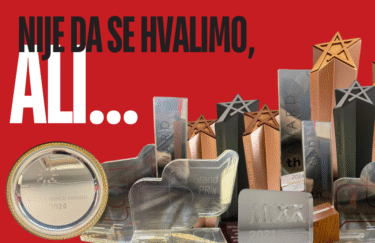What’s Most Important for a Good “Brand Storytelling”?
Being good in "brand storytelling" is satisfactory but it's much better to be the best. And to be the best it's necessary to learn from the best.

The biggest challenge for veteran PR pros and their junior team members is mostly building left-brain analytical skills to match their natural, right-brain creative inclinations, says PR News Online. Put simply, they know they’re good at brand storytelling, but they need to be just as good at metrics and analyzing data so they can be held accountable for the business value of their work.
Still, it’s important that they play to their right-brain strengths. Being “good” at brand storytelling is all well and good, but being best is far better. And to be the best, you need to learn from the best.
With that in mind, PR News and Nasdaq Media Intelligence launched a poll earlier this month asking the PR News community which of Fortune’s 2015 Most Admired Brands succeeds best at telling humanizing stories that drive positive awareness. One-fifth of the nearly 800 respondents said that Apple is the best at this kind of strategic storytelling, putting it in first place. Coca-Cola came in second, with 17% of the votes. It should be noted that both companies have historically emphasized design as part of their storytelling. Who knows—maybe Steve Jobs was inspired by the iconic look and feel of the classic Coke bottle.
We also asked the PR News community to tell us what had greater impact, stories about customers or employees, and which channels they use most for brand storytelling. Check out the full results in the infographic below.

Source: PR News Online
PR News and Nasdaq Media Intelligence conducted a joint study this July, surveying more than 370 communications professionals to benchmark the state of PR measurement and get a clearer picture of their grasp of analytics tools and insights. In a key question, respondents were asked how they rate their expertise in selecting the right communications data to analyze and their ability to apply that data to improving communications strategies.
The response was not entirely encouraging: 55 percent of PR pros rated their expertise in pulling and analyzing the right data as fair or poor, while 45 percent rated their expertise as good or excellent.
It may be that some of the 55 percent who don’t rate their data expertise highly are whizzes at using Google Analytics and a half-dozen paid tools but view that expertise through the prism of anxiety related to being held accountable for the literal business value of public relations programs.
Tags: brand storytelling
 HR
HR

